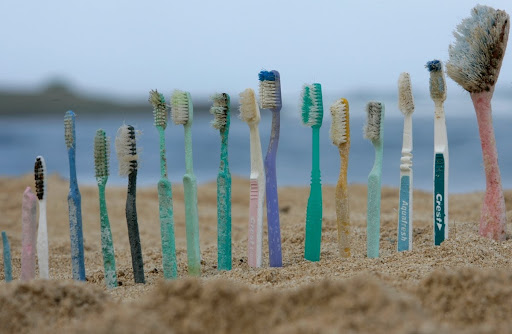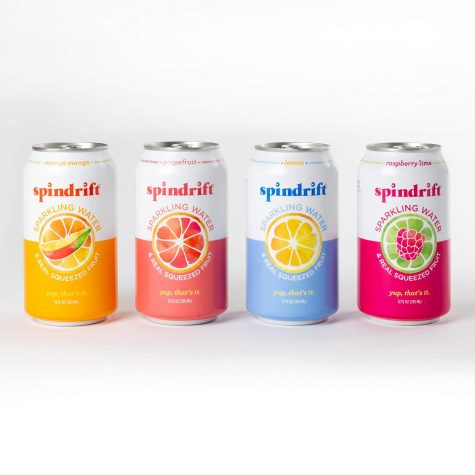Five Sustainable Self Care Swaps

Toothbrushes lined up on a beach display the amount of waste caused by everyday items.
It is no secret that the majority of businesses and large corporations are heavily reliant on plastic packaging. Similar to the fast fashion industry, the cosmetic and beauty industries are responsible for over 120 billion units of packaging waste annually. This waste is a big contributor to the ongoing climate crisis. While companies and influencers are constantly pushing 12 step skin-care routines and advertising the “must-have” items that have no real use, it is difficult for consumers to avoid plastic-cased products without spending a fortune. By making a few simple and easily accessible swaps, you can cut out some of the plastic that can accumulate in your day-to-day products, creating more sustainable habits and thus, a healthier planet.
The many uses of coconut oil
Coconut oil is a very versatile product that you can incorporate into your self care routine. Coconut oil is great because of its glass jar packaging and its accessibility. This common cooking item can be used in place of make-up remover and shaving cream. Instead of buying makeup remover wipes, coconut oil can be a more sustainable and gentler option for makeup wearers.
Shampoo and Conditioner Bars
The average American uses and throws away 11 bottles of shampoo each year , and while that may not seem like an excessive amount, that adds up to 550 million empty shampoo bottles annually. Just think about adding conditioner and body wash bottles to that equation. Bar soap is an obvious solution to this issue. While the majority of people may already use bar soap, shampoo and conditioner bars aren’t used as frequently. Common stores like Target and LUSH carry these eco-friendly products, but even just substituting body wash for bar soap can make a huge difference in reducing waste.
Buying in bulk
Believe it or not, buying things in bulk can actually have a positive environmental impact. It cuts out a portion of the packaging, ultimately creating less waste. Another benefit of buying in bulk is it can be cheaper! Larger containers have more product, using less packaging. This can reduce the overall price due to eliminating some packaging costs. When products with sustainable packaging aren’t an option, bulk buying can still make a positive difference for the environment.
Reusable Products
Essentials such as razors, toothbrushes, and loofahs can only take a few uses then end up in the trash, creating unnecessary waste and emptying wallets. However, these products come in reusable forms. Loofahs can be swapped for washcloths, which can be washed and reused almost endlessly. Toothbrushes, while they can be hard to find, can be made of bamboo. Disposable razors can be swapped for reusable ones, also known as safety razors. These razors are often made of durable metal and can last far longer than traditional single-use ones, ultimately saving money. Every single plastic product still exists on earth today, even when tossed out of sight. Making small investments for reusable products can make a huge difference.
Main brands for small businesses
When possible, supporting small businesses can not only help individuals but can also support our environment. Independent entrepreneurs and small businesses are making the biggest impact in reducing carbon emissions and making more sustainable decisions. Larger corporations are often motivated by the bottom line, whereas small businesses and companies are often more concerned with making a difference in communities and pursuing environmental and social justice. Local businesses also tend to make local purchases, requiring less transportation, ultimately producing less pollution than larger scale companies. The East End Coop and Una Biologicals are locally owned businesses in Pittsburgh that use sustainable practices!
Currently, policies are being debated in favor of the environment, such as the Build Back Better plan, in which “climate focused incentives” are to be put in place. However, until nations fully fight the climate crisis, we can support sustainable practices and be mindful about the products we buy to make a positive difference. Making small swaps in our day-to-day life can largely influence the impact we leave on our only planet.
The Lorax put it best: “Unless someone like you cares a whole awful lot, nothing is going to get better. It’s just not.”
Zoe Obenza-Bridges is a senior at Pittsburgh Allderdice High School. At the school newspaper, The Foreword, she is the lifestyle editor and enjoys investigating...






